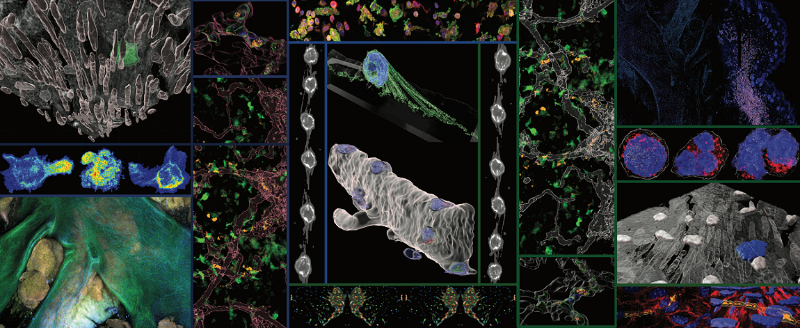
Catherine "Lynn" Hedrick, PhD

Co-Director, IMMCG
GRA Bradley Turner Eminent Scholar in Vascular & Cancer Immunology
Member of Cancer Immunology, Inflammation, & Tolerance (CIIT), Georgia Cancer Center
Professor of Medicine
Lynn Hedrick’s research is focused on two types of immune cells: neutrophils and monocytes. These cells are the first responders to all kinds of infections, wounds — even early cancer. They can clean up dead cells, attack viruses and tumors and alert the rest of the immune system to activate every defense in the body as needed.
Throughout her career, Hedrick has focused on understanding the role these two types of immune cells play in disease. This work led to her becoming a leading expert in the immunology associated with the two leading causes of death in the U.S.: heart disease and cancer.
Hedrick was the first to identify all the different types of monocytes that exist and categorize them according to the role they play. Monocytes are a type of white blood cell made in the bone marrow and then released into the blood to patrol and respond to invaders, like viruses and bacteria; they also to help repair and heal the body. Hedrick’s team continues to explore exactly how these monocytes work and how we can use this knowledge to prevent and treat diseases.
Hedrick also made a seminal discovery regarding neutrophils: She was the first to figure out how to identify their parent cells, called progenitors, by studying the bone marrow of mice and humans.
This knowledge about the origins of neutrophils – where they came from, how they were made – can contribute to efforts to control their production. If progenitor cells could be made to produce more or fewer neutrophils as needed, that would have a major impact on bolstering immune defense.
A growing area of Hedrick’s research involves the role of monocytes and neutrophils in cancer. These immune cells can help prevent and treat cancer, and in fact, Hedrick discovered that monocytes can recognize tumor cells and kill them. But these two immune cells can impede treatments and worsen disease. Cancer can trick them and keep them from working efficiently, so Hedrick is exploring mechanisms that can prevent this from happening.
Monocytes and neutrophils can also interfere with the immunotherapies patients receive. Immunotherapies introduce other types of immune cells in the body.
However, the monocytes and neutrophils Hedrick studies sometimes identify the therapies as foreign or dangerous cells and attack them before they have a chance to benefit a patient. By understanding which specific types of monocytes or neutrophils interfere with the therapies, it may be possible to dampen the production of those immune cells until the therapies have done their job.
Alongside her work on cancer immunology, Hedrick continues to study the role monocytes and neutrophils play in heart disease. She was drawn to study heart disease early in her career, as it is a key complication of diabetes. As a young child, Hedrick’s desire to understand diabetes, especially Type 1, led her to want to become a scientist someday. Her mother had Type 1 diabetes.
When Hedrick started her own lab, she focused on how complications from diabetes can lead to cardiovascular (CV) disease. This correlation had been known for Type 2 diabetes, but Hedrick and her team showed that Type 1 diabetes can also bring on CV disease.
During her career, Hedrick has also studied the cells that line the blood vessels, endothelial cells. As her research into heart disease evolved, she showed that certain types of immune cells that swim through the blood vessels could adhere to these endothelial cells and play a role in heart disease.
This work demonstrated that immunology held some of the answers to preventing and curing heart disease. While the relationship between immunology and heart disease is now widely accepted, the exact mechanisms by which these two immune cells cause damage — and the ability to harness that knowledge to prevent the disease — still need investigation, which Hedrick is conducting.
Hedrick co-directs the Immunology Center of Georgia while continuing her research in vascular and cancer immunology. Hedrick is also a member of the Cancer Immunology, Inflammation and Tolerance (CIIT) Division inside the Georgia Cancer Center.
Research
- Find new therapies that will selectively target or enhance specific monocyte subsets to treat or prevent disease.
- Identify molecules on myeloid cells (monocytes and neutrophils) that could be used as biomarkers to predict therapeutic benefit to patients.
- Provide further understanding of innate myeloid cells in homeostasis and disease.